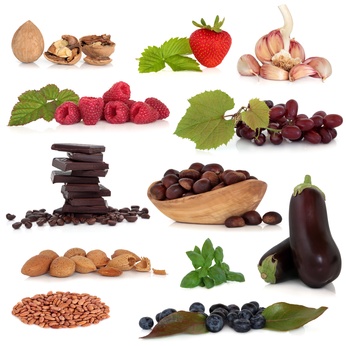

Alcoholism remains sadly prevalent in American society. It is advertised as a fun way to relax and spend time with coworkers, loved ones and even just by yourself as you sit down to watch a movie at night. There’s nothing fun about the consequences of becoming reliant on alcohol, though.
Indeed, nearly 30% of Americans — almost a full third — report struggling with alcohol addiction or alcoholism. Additionally, alcohol is the third leading preventable cause of death in America.
Alcoholism is clearly a serious disease. And just as proper nutrition plays a role in recovering from any other illness or injury, it plays a role in recovering from addiction as well. If you or someone you love is recovering from alcohol addiction, these tips can enhance the journey back to wellness.
- Develop an Eating Plan
The first step in incorporating nutrition into your recovery is to develop an eating plan. Many alcoholics develop issues with serious malnutrition due to not getting enough quality calories in their diet. Many alcoholics even skip meals, so intent they are on getting their next high that they either forget to eat.
Perhaps worse, they may refuse to eat due to the fact that consuming food makes it more difficult to get drunk. In addition, many alcoholics fail to feel hunger, as their consumption of alcohol gives them a false feeling of fullness.
A visit to a qualified nutritionist can help you or your recovering loved one get back on the right track. You’ll want a diet high in fruits, vegetables and lean proteins. Junk food should be consumed in moderation, and if any food is a particular “trigger” food (i.e. if it is associated with the urge to drink, such as bar peanuts), it should be avoided during the recovery process.
Ideally, you’ll want to focus on eating six smaller meals per day versus three larger ones. This provides more of a distraction from the urge to drink and also helps to keep blood sugar levels stable, staving off cravings.
- Replenish Vitamins, Especially B-Vitamins
Due to the fact that many alcoholics are severely malnourished, eating a diet high in fruits and vegetables also helps restore vital nutrients to the body. But that may not be enough. Alcoholism depletes the body’s stores of several critical vitamins, including vitamin D and the B-vitamins.
In particular, many alcoholics have very low levels of B6, thiamine, and folate. As both vitamin D and the B-vitamins are critical components in converting food into energy, their lack can lead to extreme fatigue and even depression.
Nuts are one great source to replenish these depleted vitamin stores, as are deep green leafy vegetables such as kale and spinach. In addition, adding in a high-quality vitamin and mineral supplement can help aid in the body’s recovery process.
- Tryptophan for Recovery
We’ve all heard of tryptophan, the ingredient in turkey that makes that post-Thanksgiving feast nap so appealing. But tryptophan can play a critical role in recovering from alcohol abuse as well.
Why? Many people first become dependent on alcohol when their daily nightcap becomes more than just one drink. While it’s true that alcohol will help you to fall asleep faster, it also results in broken rest, leading the addict to consume more and more alcohol to produce the same sleepy effects.
Tryptophan can help in this regard, not only by inducing sleep but also by helping to restore the ordinary biorhythms of the body that become disturbed due to addiction. Obviously, turkey is one food source rich in tryptophan, but some other sources include nuts, spinach, and certain dairy or dairy supplement products. Eating a meal high in tryptophan approximately one to two hours before bed can help you or your recovering loved one slip into a sound night’s sleep without the nightcap.
Additionally, a few herbal supplements that recovering addicts have reported having success with when trying to achieve better sleep are Kava, Passion Flower and Melatonin. These are often primarily used to help lessen the symptoms of anxiety disorders, but they reportedly can have a similar calming effect for those who have a difficult time falling asleep. Talk to your doctor about what might work best for your specific health needs.
- Be Wary of Sugar
While junk food should be avoided in general during recovery due to the high amount of empty calories it contains, sugar, in particular, should be avoided. Why? Alcohol is a form of sugar. Consuming foods high in sugar, therefore, may lead to a temporary high. However, once the blood sugar spike wears off, levels tend to crash, leading to cravings and irritability. This can increase cravings, especially cravings for a drink.
Instead, when consuming carbohydrates, make sure that they are complex in nature. Choose bread made from whole grains and seek out pasta dishes made from quinoa or other ancient grains. These keep you fuller longer and also keep your blood sugar stable.
Above all, be kind to yourself or your loved ones during any recovery process. Recovering from addiction is not easy, but it is always worth it. Giving your body the tools it needs to heal in the form of proper nutrition will assist you in making the recovery process as painless as possible while you break through to your healthy new life.




